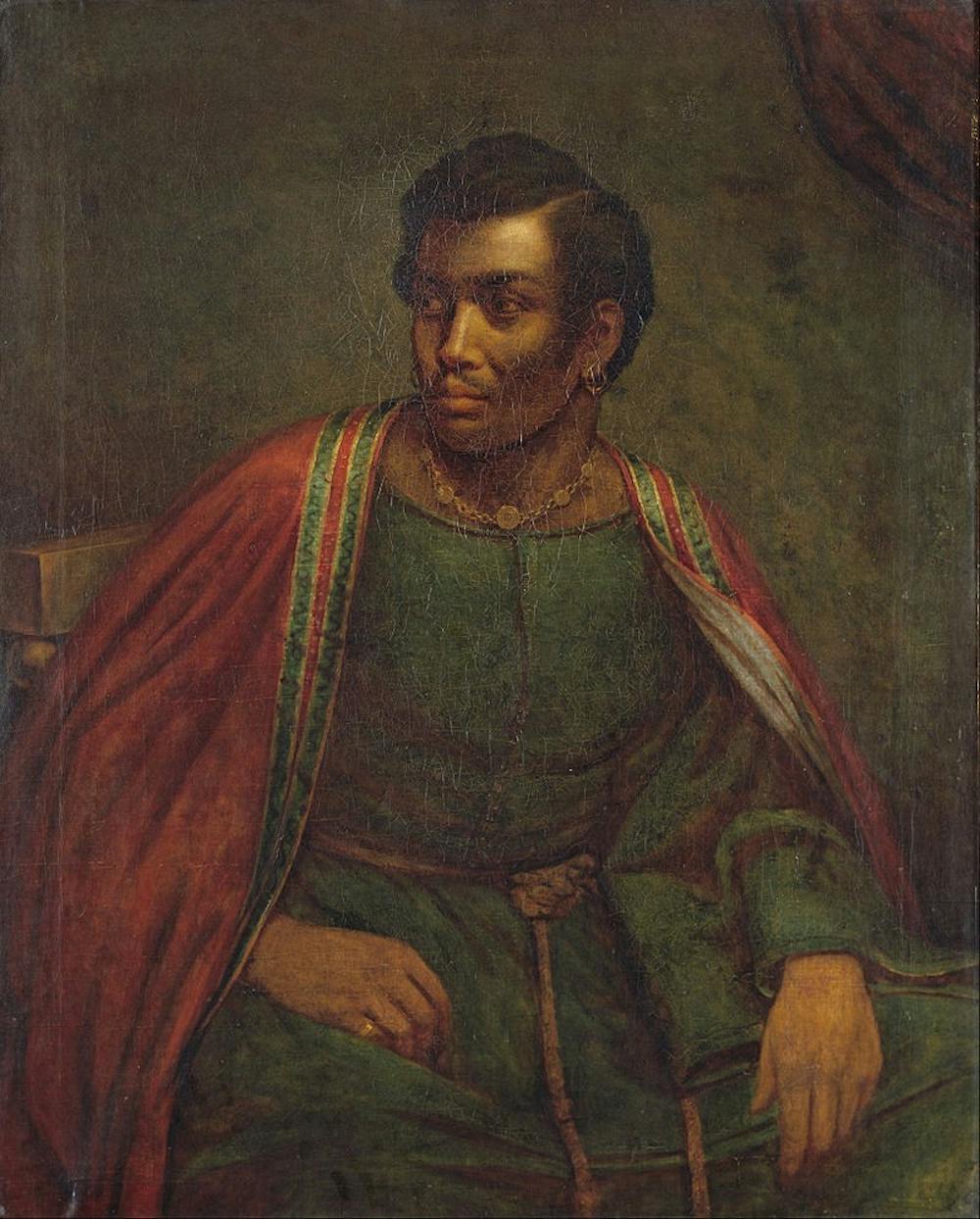Red Velvet, a play based on the revolutionary life of African American actor Ira Aldridge, concluded its run at the Chesapeake Shakespeare Company this weekend.
The play tells the story of a nineteenth-century actor who struggled to defy the prejudices of Anglo-American society and to achieve success as a performer in Shakespearean plays.
Red Velvet is a 2012 drama by Lolita Chakrabarti first performed at London’s Tricycle Theatre and since performed by several regional theater companies within the United States. The production at Chesapeake Shakespeare Company was directed by Shirley Basfield Dunlap.
This biographical piece centers on the life of the trailblazing Shakespearean actor Ira Aldridge and his experiences playing Othello in an 1833 London production at the Theater Royal in Covent Garden.
Aldridge had begun as an actor in the United States, working at the African Company in New York. Sensing the limitations imposed by Americans’ racial prejudices, Aldridge decided to sail to Liverpool in 1824 with the goal of building a career in England.
Upon his arrival there, he quickly became famous, yet many fellow actors and critics referred to and judged his work in racist and demeaning terms.
Despite the bigotry he faced, Aldridge built a successful career and toured Europe, becoming particularly popular in Prussia and Russia.
Red Velvet alternates between London in 1833 and Lodz, Poland in 1867. The context of the play is part of what makes Aldridge’s life so compelling: 1833 was the same year in which the British Parliament voted to abolish slavery in the United Kingdom.
Prior to Aldridge taking on the role, Othello, a Moor, had previously been played only by white men, most often while wearing blackface. But in 1833, disaster has struck the Theater Royal. During a performance of Othello, lead actor Edmund Kean takes ill and needs to be replaced.
Ira Aldridge (Christian Gibbs) is selected by theater manager Pierre LaPorte, (Yury Lomakin) to play the leading role, over the objections of Kean’s son Charles (Ron Heneghan), who resigns from the company in disgust.
Other members of the company have their own feelings about the choice. Leading lady Ellen Tree (Laura Rocklyn) is amazed by Aldridge’s desire to use a more authentic acting style. The more traditional Bernard Warde (Dave Gamble) expresses distaste at the idea, while young Henry Forrester (Seamus Miller) welcomes the news. Connie (Tracey Farrar), the Jamaican housekeeper of the theater, is always present and always watching the interactions between the actors.
McLean Jesse plays two roles in the portion of the play set in 1833, that of Margaret Aldridge, Ira’s wife, and actress Betty Lovell, a young member of the company.
In 1867, she plays Halina Wozniak, a young Polish journalist who importunes Aldridge as he plays King Lear in Lodz. Wozniak is hoping that an interview with Aldridge will allow her to obtain journalistic prestige in a male-dominated newsroom.
It is deeply compelling to observe Aldridge as he grapples with a role previously reserved for white men and the implications that come with it: critics who utilize explicit racial terminology to discuss his performance, fatal fissures in his longtime friendship with the flawed LaPorte, and his fellow cast members who awkwardly and haltingly attempt to understand Aldridge’s experiences.
Some of the more humorous portions of the play also revolve around the theater company, as Aldridge attempts to encourage a somewhat more realistic and emotional acting style among the players, who are wedded to a formal and Mannerist interpretation of the Shakespearean tragedy.
As Aldridge plays out the famous handkerchief scene onstage, it is evident that the grand, gestural style of the company shall be replaced and that a new, more authentic and more urgent form of acting is on the horizon.
The sections that take place in Poland, wherein a young female reporter interrogates Aldridge about his trailblazing performance, are slower than the sections that focus on the lively and quarrelsome theater company in 1833.
The attempt to interlace the discrimination faced by this woman with Aldridge’s struggle makes overly explicit the relevance of his experience in the face of modern day struggles for racial and gender equality.
The play probes questions which are still pressing and relevant to this day, questions about what acting should be and who should be permitted to act in what roles. Sometimes, the characters announce their political views on these subjects with a frankness and contemporary language which can be a bit startling.
Yet the notions that they discuss are fraught with importance in the modern entertainment industry, which is reckoning with the #MeToo movement and a variety of ongoing questions about the representation of women and minorities onstage and on the screen.
The Chesapeake Shakespeare Company continues its 2017-2018 season with two more plays in its downtown Baltimore location before its traditional summer show outdoors at the Patapsco Female Institute Historic Park in Ellicott City.
Beginning in March will be Shakespeare’s The Winter’s Tale, directed by Isabelle Anderson, then in April and late May, Alice in Wonderland, by Lewis Carroll, adapted by Eva Le Gallienne and Florida Friebus and directed by Ian Gallanar. This year’s summer outdoor show will be Shakespeare’s A Midsummer Night’s Dream, directed by Gerrad Alex Taylor.

















